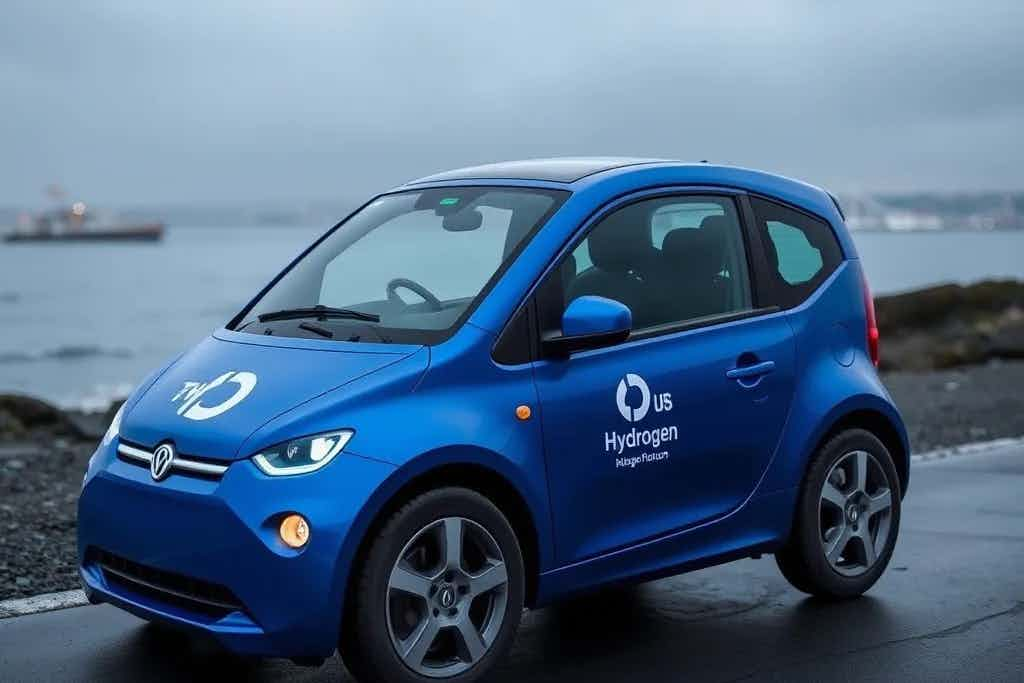You ever get that feeling where you're standing at a gas station, watching the numbers tick up, and thinking, “There’s gotta be a better way to power stuff than this, right?” Yeah, you’re not alone. That’s where hydrogen fuel cells come into the picture.
They’re not exactly new—but with the world getting more serious about climate change and ditching fossil fuels, hydrogen is getting its time in the spotlight again. But is it all hype, or is this stuff actually the real deal?
First Off, What Even Is a Hydrogen Fuel Cell?
Okay, quick science detour—but I promise it won’t be boring.
Picture a little box that quietly makes electricity using hydrogen and oxygen. No roaring engine, no thick clouds of exhaust. Just a slick little electrochemical reaction that gives off electricity, heat, and—you guessed it—water. Yep, plain ol’ H₂O.
Here’s how it works: hydrogen goes in on one side, oxygen on the other. Inside the cell, the hydrogen gets split into protons and electrons. The electrons take the scenic route through a circuit (that’s your electricity), while the protons sneak through a special membrane. They all meet up with the oxygen on the other side, do a little happy dance, and boom—water comes out.
It’s like magic, except it’s just good old chemistry.
Why People Are Getting Hyped About Hydrogen
There’s a lot to like about these things—here’s why folks are paying attention:
🚗 No Nasty Emissions
The only thing that comes out of a hydrogen fuel cell is water vapor. Not even joking. If cars ran on hydrogen, our roads would be cleaner than a freshly power-washed sidewalk.
⚙️ High Efficiency
Compared to gas engines—which waste a lot of energy as heat—fuel cells are way more efficient. More of the fuel’s energy actually goes into moving your car (or powering whatever it’s hooked up to).
🔋 Tons of Uses
These things aren’t just for cars. You can use hydrogen fuel cells for backup power in buildings, charging gadgets, or even running trains and planes. Basically, if it needs power, hydrogen can help.
🌎 Flexible Sourcing
One of the coolest parts? You can make hydrogen from a bunch of stuff—natural gas, biomass, or even water using solar or wind power. So whether you're in the desert or near a waterfall, there's potential.
But Let’s Be Real—It’s Not All Rainbows and Unicorns
Now, before we all throw our gas-powered gear in the trash, there are still some hurdles to clear.
⛽ Infrastructure Is… Lacking
You know how there’s a gas station on every corner? Yeah, we’re not there with hydrogen yet. You’d be lucky to find a single hydrogen pump in most cities.
⚡ Clean Hydrogen Isn’t Cheap
Sure, we can make hydrogen—but making it cleanly is another story. A lot of current hydrogen comes from fossil fuels (ironic, right?). Making it from water using renewable electricity (aka electrolysis) is way better, but it still costs a lot and isn’t widespread—yet.
💵 Still Pretty Pricey
Fuel cell tech isn’t cheap. The cells themselves, the infrastructure, the storage—all of it adds up. But like anything else (remember how expensive flat-screen TVs used to be?), prices tend to drop as things scale.
🔥 Safety First
Hydrogen is super flammable. That doesn’t mean it’s unsafe, but storing and transporting it takes careful design. We're not trying to reenact the Hindenburg, okay?
So... Is Hydrogen the Future or Just Another Buzzword?
Here’s the honest answer: it’s complicated. But promising.
Hydrogen might not replace everything, but in areas where batteries fall short—like long-haul trucks, industrial power, or remote locations—it could be a total game-changer. Governments are throwing serious funding at it. Big companies are experimenting. And engineers? They’re working around the clock to make it safer, cheaper, and more accessible.
This isn’t just a moonshot. It’s already happening—you just might not have noticed yet.
Final Thoughts
Hydrogen fuel cells aren’t perfect, but let’s be real—neither is any energy source. What makes them exciting is the potential. Clean energy. Flexible applications. Real results without trashing the planet.
Will we all be driving hydrogen-powered cars next year? Probably not. But in five, ten, maybe fifteen years? Don’t be surprised if hydrogen becomes part of your daily life—whether you realize it or not.
Until then, maybe keep an eye on this space. The next time someone says “hydrogen fuel cells,” you won’t just nod along—you’ll know they might be onto something big.
Hydrogen Fuel Cells: A Clean Energy Solution?
~ 4 minutes read

Hydrogen fuel cells offer a clean, efficient, and sustainable alternative to fossil fuels. With zero harmful emissions and a high energy conversion efficiency, they have the potential to revolutionize transportation and energy production. However, challenges such as infrastructure development, hydrogen production costs, and safety concerns need to be addressed for widespread adoption.
Advertisement